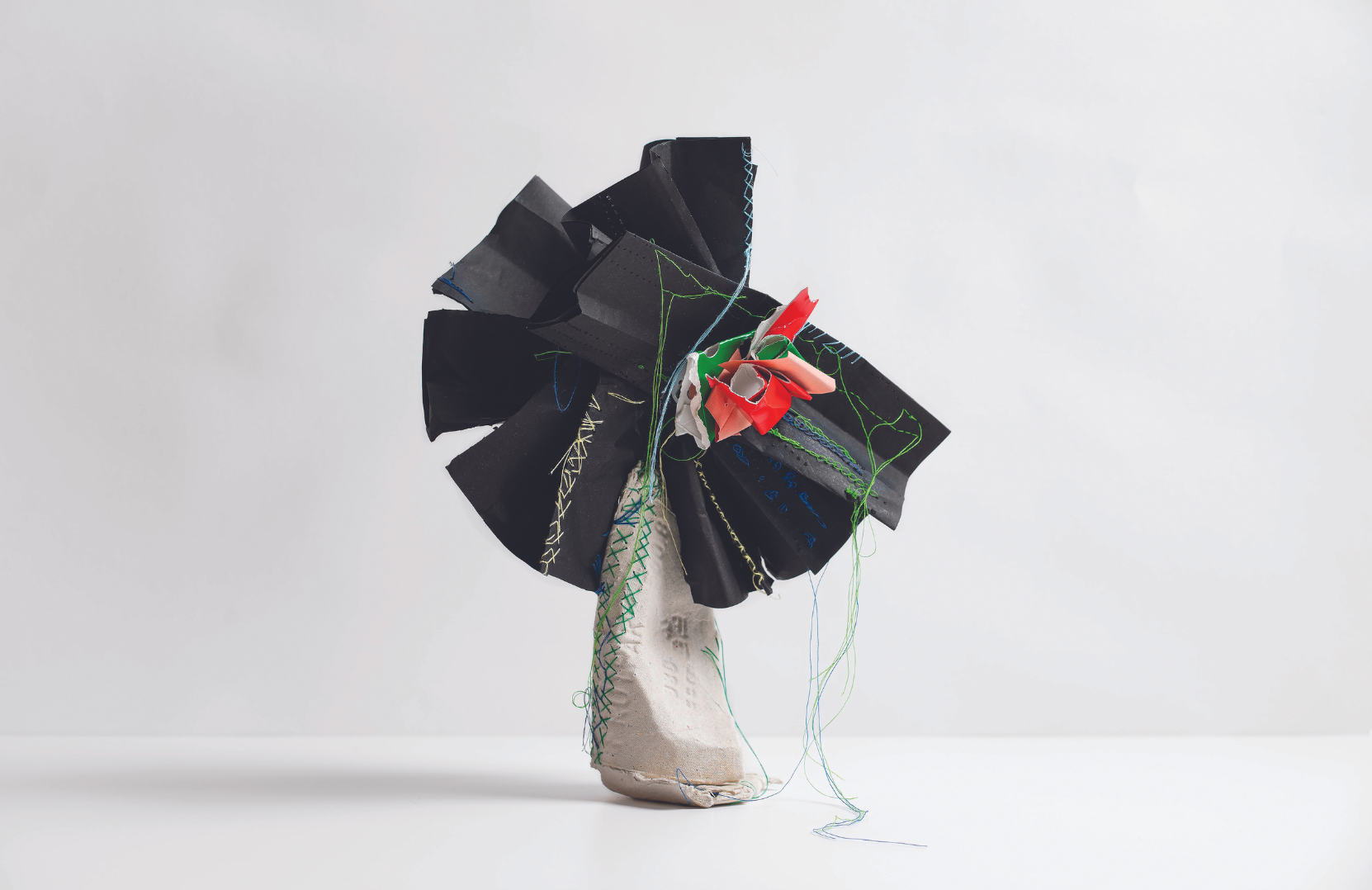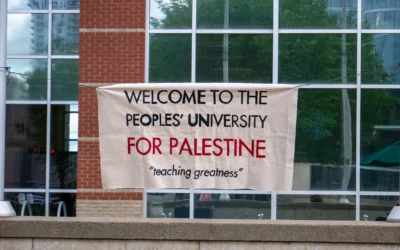This year, MacEwan University resumes its sustainability commitments after some pandemic disruption. Joe Stack, the operations manager with facilities, has big plans to improve MacEwan University’s sustainability when it comes to recycling and waste management.
In March of 2022, Stack and the facilities team conducted a waste audit at MacEwan, and they found that only 22 per cent of MacEwan’s waste was being diverted from landfills and being recycled. The other 78 per cent went directly to landfills.
After seeing these numbers, Stack and the facilities team decided to implement some changes. “We set a goal of increasing our diversion from 22 per cent to 30 per cent which is still very, very low,” says Stack. “I think we should be much, much higher.”
To improve MacEwan’s diversion rate, Stack is working with waste management company GFL Environmental to develop new signage to be used on MacEwan’s waste bins. Instead of labelling bins as “waste” or “garbage,” they will be labelled “landfill.”
“We’re doing that here because it’s right in your face,” says Stack. “You know where (the garbage) is going — it’s going in the ground. It’s not… going to some lovely little place.”
Starting Jan. 5, Stack is also running a composting pilot program in the washrooms in three MacEwan buildings: Robbins Health Learning Centre, Allard Hall, and the University Service Centre (USC). The paper towels will be composted to reduce some of the university’s waste output.
So far, Stack only has funding for this project to continue until the end of April, but he hopes that he will be able to secure additional funding to keep the composting project going and to implement composting throughout the entire university, particularly in the SAMU building.
Eventually with the right funding, Stack also hopes to get the cafeterias and food facilities in on the composting project.
“One of the biggest things about composting, which is quite shocking, is how expensive it is,” notes Stack. “You think… just throw (the compostable waste) in… no big deal. But the composting bags that we use to go into the bins, they’re four, almost five times the cost of a regular garbage bag.”
Stack explains that the university pays $15 for a case of 200 regular garbage bags but $96 for a case of compostable garbage bags, and the university goes through between 80 and 100 cases of garbage bags a month. “That’s an enormous expense,” says Stack.
In an effort to double down on their sustainability efforts, MacEwan hired Bonnie Dong as the sustainability manager with facilities, to implement sustainable changes across the university. She started her position in late December of 2022.
This year, her primary goal is to connect with sustainability allies across campus and start revisiting the MacEwan sustainability plan. Implementing more tracking and reporting is also important to Dong.
She also plans to resubmit MacEwan for STARS (the Sustainability Tracking, Assessment & Rating System), which is a program that recognizes the sustainable efforts of higher education institutions. MacEwan’s past silver rating with STARS expired in 2021.
“We’ll be looking to either match or improve that (score),” Dong says.
But right now, the university is focused on small steps toward a more sustainable reality. “This is the first step for us, re- invigorating my role here and then us trying to just get active in this space again,” says Dong. She notes that many sustainable initiatives that the university was working on were disrupted by the pandemic. “Now, I think that we are going to bring some focus back to (sustainability),” she adds.
But improving MacEwan’s sustainability, and particularly Stack’s diversion-rate goal, isn’t something that the facilities team can do all on their own. They need the cooperation of students to lower the amount of waste that goes directly to landfills.
“Take a moment and think about where you’re putting your waste,” Stack asks of students. “Don’t just throw it in the garbage or throw it in the recycling because not everything is recyclable and not everything is garbage.”
“We found when we did our waste audit (that) we had way more stuff designated to go to compost or recycling. But because people are throwing stuff in (the bins) that contaminated (these recyclable items), then it goes to garbage,” continues Stack.
Stack and Dong plan to do another waste audit to see how MacEwan is progressing on the diversion-rate goal. Additionally, GFL will be on campus providing waste and recycling education later this winter.





MacEwan should create a pilot for its own outdoor compost. There are tons of places you could build compost bins, even out of pallets. You obviously have to limit the amount of food waste (no meat) going in depending on the size. But it’d be a great way to divert some waste.
I do know there are a few places I can use the composting bins in the school, but I rarely know where the closest one is. A map of where to find composting bins would be really helpful.